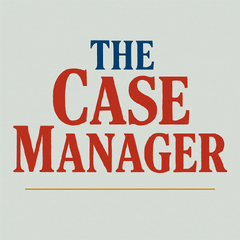Share This Article:

Moving Theory to Practice: How Case Managers Can Expedite the Process by Using the Case Management Standards of Practice
17 Sep, 2025 Anne Llewellyn

The Case Manager
The Institute of Medicine report Crossing the Quality Chasm stated, “It now takes an average of 17 years for new knowledge generated by randomized controlled trials to be incorporated into practice, and even then application is highly uneven. More recently, the National Institutes of Health (NIH) estimated that developing a new drug or medical device from conception to market takes 14 years and costs approximately $2 billion. Why so long, and how can we expedite practices sooner?
In this article, I discuss how professional case management professionals can effectively move theory into practice in real time, which will improve the delivery of care, contain escalating healthcare costs, and improve patient, family, and staff satisfaction.
Case Managers are at the center of the healthcare system, working with patients, caregivers, and the interdisciplinary healthcare team. Together, they are doing important work in delivering healthcare across a complex, fragmented, and sometimes callous healthcare system.
Case Managers have an essential role that, when used effectively, can impact the entire system. Case Managers are influencers. Here are some of the ways case managers can influence practice by:
- Improving communication between all parties
- Coordinating care between patients, payers, and providers
- Educating oneself on new advances and developments by networking, attending conferences, reading clinical journals/articles, asking questions when problems and issues arise, and sharing this information within their organizations.
- Being at the table with leadership, joining and participating in committees where decisions are made regarding patients and the delivery of care.
- Paying attention and contributing to health policy by speaking to your local, state, and federal political leaders about how proposed and implemented policies impact the work they do, which increases barriers and increases the costs of care.
- Using their voices to correct misinformation and share accurate information during in-person conversations with people (patients, families, and caregivers) within the organization and on social media.
Unlike durable medical equipment and new medications that require years of research, data collection to support needs, and millions of dollars to ‘get to market,’ the practice of case Management has a more practical application that can be used in every setting to ensure the delivery of safe, effective care, at the right time, in the least restrictive setting for the most cost effective price. That practical approach is outlined in the Case Management Standards of Practice.
The Case Management Standards of Practice provides the foundational benchmarks and paradigms for consumers, health plans, healthcare systems and organizations, employers, federal agencies, entrepreneurs, policymakers, and academicians to utilize for education, training, process improvement, program development, accountability, and scope of practice.
The Case Management Standards of Practice were initially released in 2002 and have been revised five times to keep up with the changes in the healthcare system. The latest version was updated in 2022.
Every organization that delivers or pays for healthcare to people of all ages can utilize the standards to streamline workflows, enhance quality improvement projects, and ensure the delivery of safe, timely, effective, coordinated care in the least restrictive setting that is cost-effective and meets the patients'/families' goals.
Implementing the Standards of Practice into your organization's policies and procedures expedites the implementation of the theory behind the Standards and allows for its application in clinical practice by all members of the healthcare system in real time.
I urge you to download a copy of the standards for your organization and start a campaign to use the standards to improve your work.
To get your copy of the Case Management Standards of Practice, visit https://cmsa.org/about/standards-of-case-management-practice.
If you or your organization has used the Case Management Standards of Practice to transform your organization's practices, I would love to hear from you.
Have a good month!
AI california case file caselaw case management case management focus claims compensability compliance compliance corner courts covid do you know the rule employers exclusive remedy florida glossary check Healthcare hr homeroom insurance insurers iowa kentucky leadership NCCI new jersey new york ohio pennsylvania roadmap Safety safety at work state info tech technology violence WDYT west virginia what do you think women's history women's history month workers' comp 101 workers' recovery Workplace Safety Workplace Violence
Read Also
About The Author
About The Author
-
Anne Llewellyn
Anne Llewellyn is a registered nurse with over forty years of experience in critical care, risk management, case management, patient advocacy, healthcare publications and training and development. Anne has been a leader in the area of Patient Advocacy since 2010. She was a Founding member of the Patient Advocate Certification Board and is currently serving on the National Association of Health Care Advocacy. Anne writes a weekly Blog, Nurse Advocate to share stories and events that will educate and empower people be better prepared when they enter the healthcare system.
More by This Author
- Jan 16, 2026
- Anne Llewellyn
- Jan 09, 2026
- Anne Llewellyn
Read More
- Jan 18, 2026
- Chris Parker
- Jan 16, 2026
- Frank Ferreri
- Jan 16, 2026
- Anne Llewellyn
- Jan 14, 2026
- Frank Ferreri
- Jan 13, 2026
- Chriss Swaney
- Jan 13, 2026
- Liz Carey




